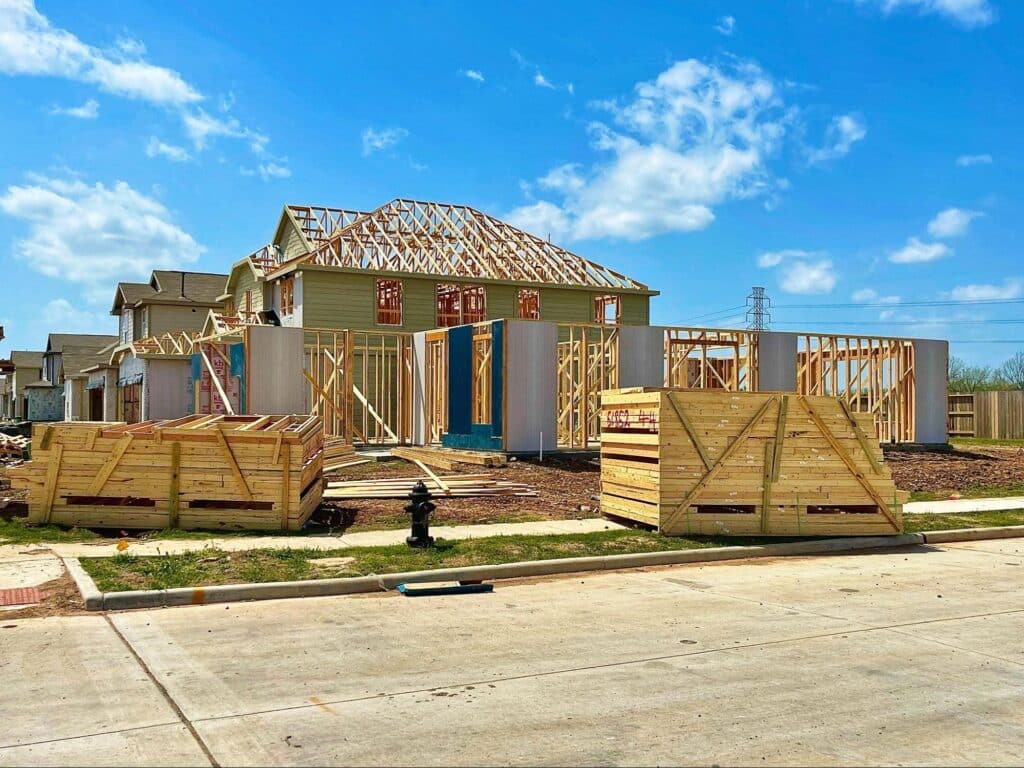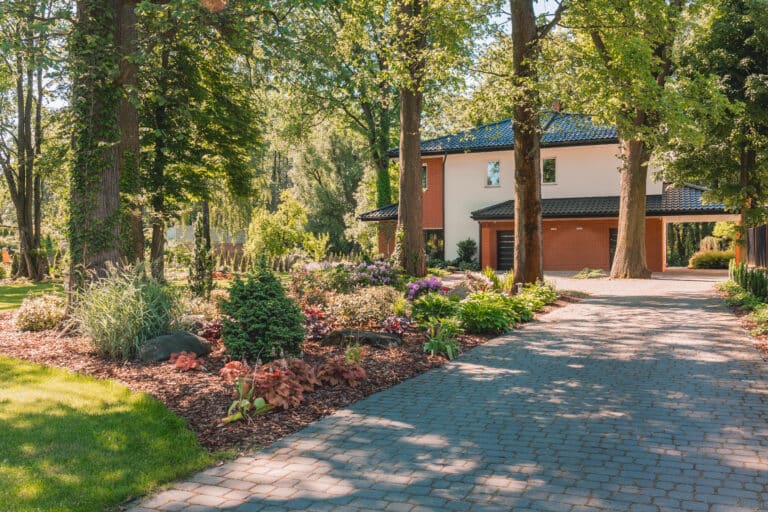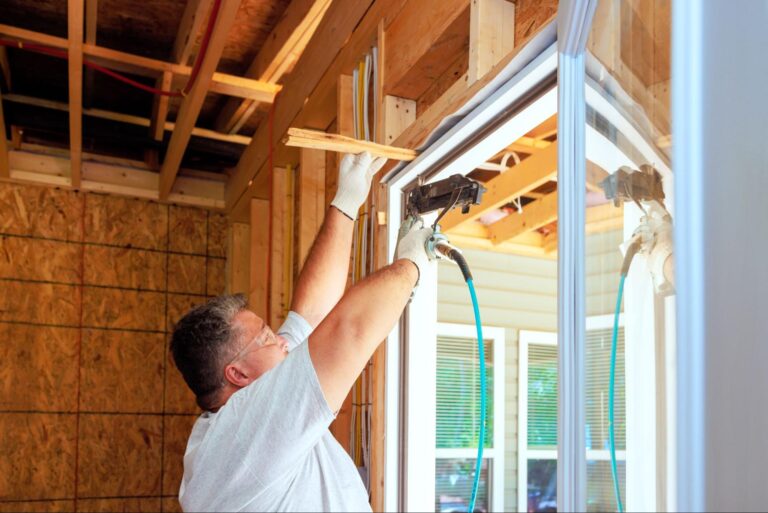Building a new home in Indiana is a milestone that allows you to create a space tailored to your lifestyle and budget. New construction homes offer modern amenities, energy-efficient systems and modern building techniques, along with reduced maintenance, making them increasingly popular among homebuyers. This guide addresses frequently asked questions about new construction homes—from understanding the benefits and building process to financing and choosing the right builder—while highlighting Value Built Homes’ streamlined approach to affordable, stress-free home building.
What Are the Benefits of Buying a New Construction Home?
New construction homes offer numerous advantages for today’s buyers. Modern building methods that incorporate updated energy-efficient systems and quality materials result in lower utility costs and minimized maintenance expenses. Because everything is new—from the HVAC system and electrical work to the roofing and plumbing—you avoid most of the costly repairs common in older homes.
In addition, the design of new construction homes is geared toward contemporary lifestyles. Open floor plans featuring integrated storage and flexible spaces enhance both functionality and aesthetics. For many, the predictable financial commitments combined with potential long-term resale value make new construction an appealing choice.
What Should You Know Before Building a New Home?
Starting your home-building journey requires careful planning. Here are a few essential points to consider:
Define Your Budget and Financing Options
Set a clear budget that covers construction costs, upgrades, and unexpected expenses. Explore financing options early, including construction loans and traditional mortgages. Prequalifying can help streamline the process and clarify what you can afford.
Understand Local Building Requirements
Familiarize yourself with local building codes and zoning regulations. Knowing these details in advance can prevent surprises and delays, ensuring your project meets all necessary standards.
Research and Choose the Right Builder
Select a builder with a strong reputation and a history of constructing quality, site-built homes. Customer testimonials, project portfolios, and clear communication are key indicators of a reliable builder who can guide you through the process with transparency.
Plan for Functionality and Future Needs
Consider your lifestyle and long-term plans when choosing a floor plan. Many builders offer customizable yet standardized layouts that balance cost-efficiency with personalization. Think about the number of bedrooms, bathrooms, and potential spaces such as home offices or storage areas to ensure the design meets your evolving needs.
How Does the Process of Building a Home Work?
Building a new home can be broken down into several clear stages:
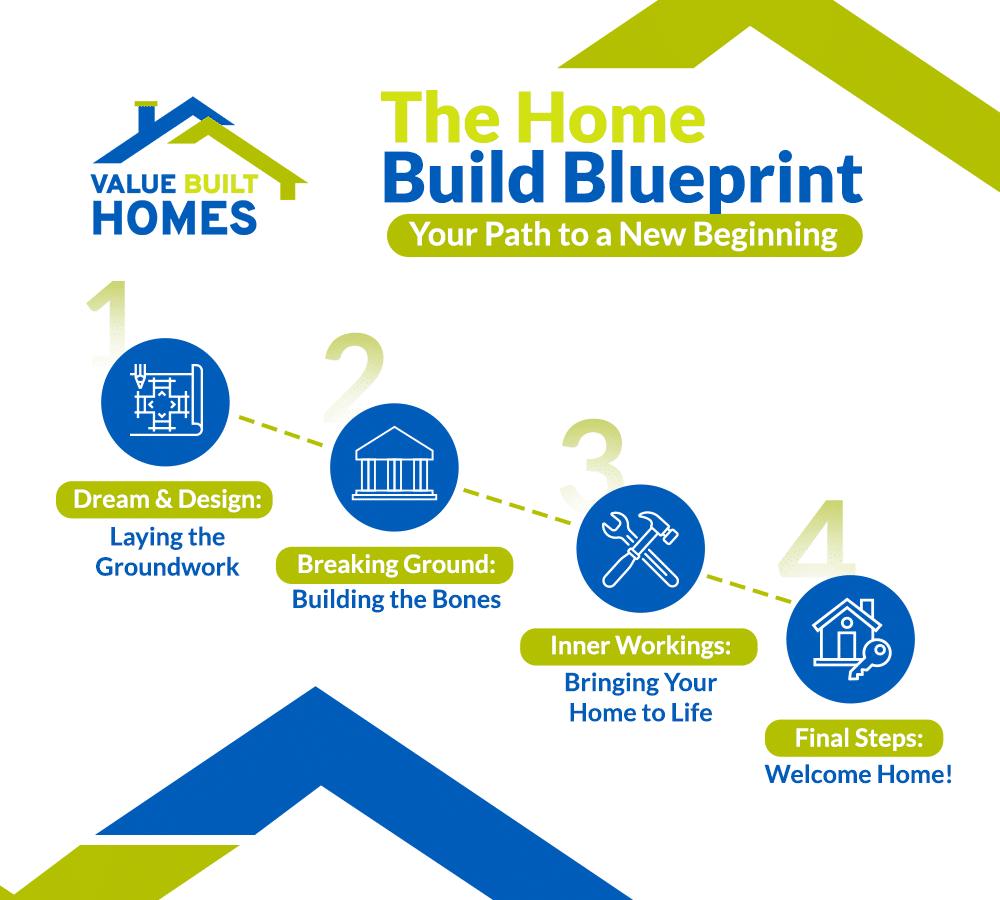
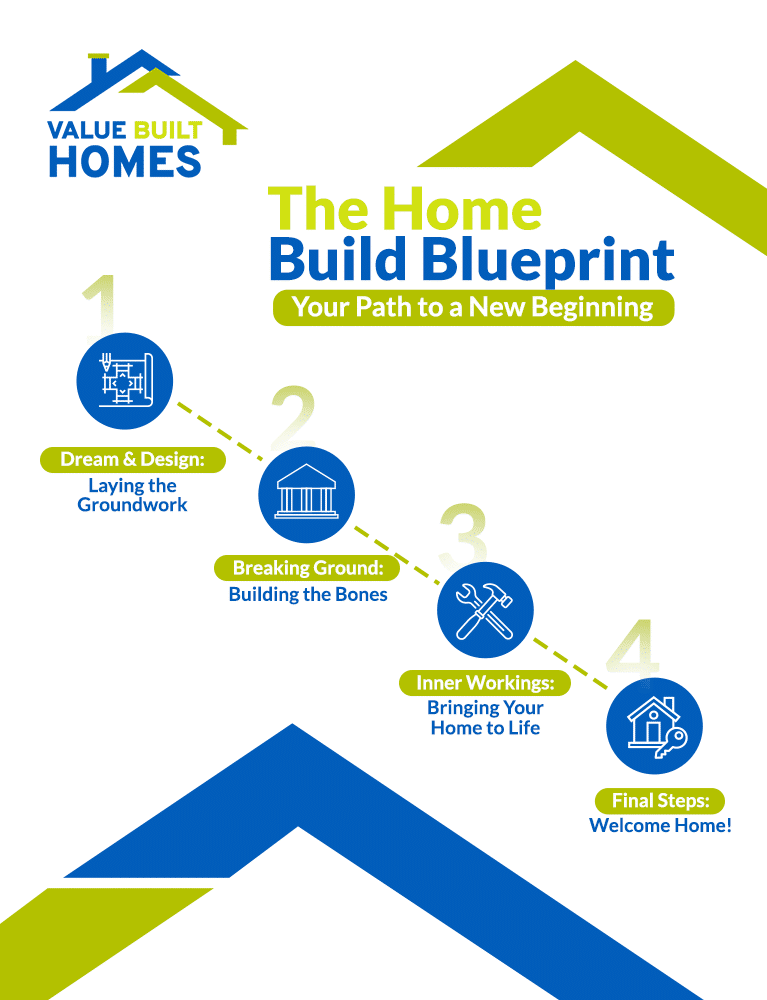
Planning and Pre-Construction
This phase involves selecting a floor plan, finalizing financing, and preparing design details. Your builder will manage permit applications and inspections, establishing a solid foundation for the project.
Site Preparation and Foundation
The construction process begins with clearing and grading the land, followed by pouring the foundation. Once the structural framework of the home is set, the project moves into the installation phase. Early work on site preparation is critical for a successful build.
Installation of Systems and Interior Finishing
Following framing, builders install essential systems such as electrical, plumbing, and HVAC. Interior work—including drywall installation, painting, flooring, and cabinetry—then brings the home to life.
Final Inspections and Move-In
Before occupancy, the home undergoes a series of final inspections. A final walkthrough allows you to review the finished product and ensure all details meet your expectations.
How Long Does It Take to Build a New Home?
The timeline for constructing a new home depends on factors like size, design complexity, weather conditions, and material availability. In Indiana, projects typically take anywhere from a few months to over a year. Builders who use standardized floor plans and efficient practices, such as those employed by Value Built Homes, aim to streamline various aspects of the construction process to help manage delays, though individual project timelines may vary.
Key factors influencing construction time include:
- Customization Level: Predefined designs can help reduce delays compared to fully custom builds.
- Weather Conditions: Seasonal weather in Indiana can impact exterior work.
- Contractor Coordination: Effective collaboration among subcontractors can contribute to keeping the project on track.
What Are the Customization Options for a New Home?
Customization allows you to make a new home uniquely yours while balancing cost and efficiency. Many builders offer standardized floor plans that can be tailored through choices in finishes, cabinetry, flooring, and countertops. This approach often minimizes delays compared to fully custom designs while still enabling you to personalize interior details.
For buyers with a specific vision, some builders offer additional adjustments within the standardized framework. Tailoring selected features typically results in lower costs and shorter build times—ideal for those seeking both style and efficiency.
What Makes New Construction Homes Energy Efficient?
New construction homes are designed with energy efficiency in mind. Modern techniques incorporate high-performance insulation, energy-efficient windows and doors, and advanced HVAC systems. These features help reduce energy bills while creating a comfortable living environment.
Efficiency is further enhanced by the use of Energy Star-rated appliances, LED lighting, and other sustainable technologies. Together, these systems offer long-term environmental and financial benefits.
What Should You Consider When Choosing a Home Builder in Indiana?
Selecting the right builder is crucial for a successful project. Consider these factors:
Experience and Reputation
Choose a builder with a proven track record of constructing quality homes in Indiana. Reviews and project portfolios can give insight into their reliability and craftsmanship.
Affordability and Transparency
A reputable builder will provide clear, upfront pricing with detailed cost breakdowns. Transparent pricing helps prevent unexpected expenses and ensures you know exactly what you’re paying for.
Communication and Customer Service
Effective communication from the initial consultation to the final walkthrough is essential. A builder who keeps you informed throughout will make the process smoother.
Timelines and Efficiency
Review the builder’s history of completing projects on schedule. While efficient construction methods and standardized designs can help manage timelines, always be aware that construction projects can be influenced by various unforeseen factors.
Local Expertise
Select a builder well-versed in Indiana’s building codes, zoning laws, and local market conditions. Their local knowledge can facilitate smoother navigation through permitting and regulatory processes.
How Does Value Built Homes Simplify the Home Building Process?
Value Built Homes streamlines the home-building journey through several key strategies:
Standardized Floor Plans
Offering a curated range of floor plans reduces decision fatigue and can help expedite project turnaround. These designs balance modern amenities with affordability, making the customization process simpler and more predictable.
Efficient Project Management
Value Built Homes emphasizes cost control and quality assurance through efficient project management practices. Their approach includes techniques such as bulk material purchasing and supply chain efficiencies, which are intended to help manage costs and minimize potential delays, though specific outcomes can vary by project.
Transparent Communication
From budgeting and financing to progress updates and final inspections, clear communication is a priority. This open dialogue supports a smoother construction process and helps address challenges as they arise.
Are There Any Hidden Costs When Building a New Home?
While new construction homes typically offer transparent pricing, there may be additional costs. Being proactive in planning can help you avoid surprises:
- Site Preparation: Costs may rise if significant grading, drainage, or utility hookups are needed.
- Permitting Fees: Local permit costs and impact fees can vary and might not be included in the initial estimate.
- Upgrades and Customizations: Extra features beyond the builder’s standard package generally add to the overall expense.
- Utility Connections: In rural areas, additional charges for connecting essential services might apply.
- Contingency Funds: A reserve fund of about 5-10% of your total budget is recommended to cover unexpected expenses.
Choosing a builder noted for transparency—such as Value Built Homes—can help ensure that all costs are clearly outlined from the start.
What Financing Options Are Available for New Construction Homes?
Financing a new build is different from purchasing an existing home. Common financing approaches include:
Construction Loans
These loans cover the cost of building your home in stages. Typically, interest-only payments are made during construction, with the loan converting to a conventional mortgage once the home is completed. Construction loans usually require detailed project plans and have specific qualification criteria.
Traditional Mortgages
For newly completed homes, a conventional mortgage is often the easiest option. These loans are generally approved for properties that meet local building codes and are move-in ready, offering stable financing terms.
Bridge Loans
If timing is critical or short-term funds are needed, bridge loans offer temporary financing until permanent arrangements are secured. Although these loans usually have higher interest rates, they can help manage transitional periods effectively.
Practical Financing Tips
- Partner with Experienced Lenders: Work with lenders who understand construction financing.
- Get Prequalified Early: Understanding your budget upfront can simplify negotiations.
- Review Builder Pricing: Make sure you know what’s included and plan for any extras.
- Maintain a Contingency Fund: Allocate resources for unforeseen expenses during construction.
Value Built Homes collaborates with trusted lenders and practices transparent pricing to help align financing with your overall construction plan.
Making Your Indiana New Build a Reality
Building a new construction home in Indiana is an excellent opportunity to create a space that meets your specific needs while benefiting from modern design, energy efficiency, and cost-effective building practices. Careful planning—from design selection and builder research to financing and schedule management—is essential for success.
By leveraging standardized floor plans, efficient project management, and transparent communication, builders like Value Built Homes work to streamline the construction process. While these practices may help manage delays and control costs, individual project timelines can vary depending on numerous factors.
Contact Value Built Homes today to begin your journey toward an affordable, high-quality new home built for your needs today and for the future.

